Source >> The Radical History of Hackney
“I can’t help feeling that Freddy has had great injustice all through his life.”
Eleanor Marx
Frederick’s Demuth’s story is a convoluted one which is contested by a number of historians – and tainted by hostility or deference to his alleged father. This bias makes it difficult to do justice to Demuth himself.
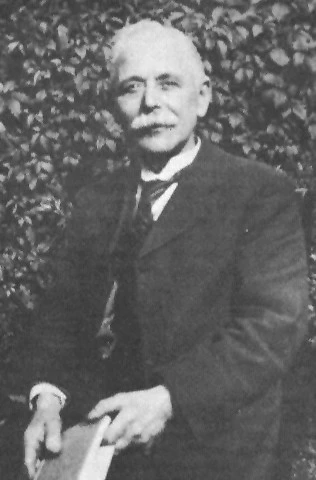
People have strong feelings about Karl Marx, so I’ll put my cards on the table from the outset and say that reading his books has helped me to understand the world. I would thoroughly recommend David Harvey’s lectures about Capital which can be viewed on Youtube or downloaded as mp3s. As an individual Karl seems as charming and annoying and brilliant and messed up as the rest of us – if not more so. More on that later.
We have some travelling to do before we reach Hackney, so please bear with me…
Marx – married and on the move
Karl Marx married Jenny von Westphalen in 1843. They had been engaged for seven years and had known each other since childhood. In October 1843 the Marxes moved from Jenny’s family home in Kreuznach (near Frankfurt) to Paris. It was a busy time. Karl wrote for a radical journal, met lifelong comrade Friedrich Engels for the first time and began his expansive study of political economy that would be the basis for Capital. The couple’s first daughter Jenny Caroline was born in 1844 (the convention is to use the second name to avoid confusing the Jennys, as we will see).
The Marx family were kicked out of France in 1845 and headed to Brussels. Jenny Marx’s mother was worried about them and sent her housekeeper Helene ‘Lenchen’ Demuth to help. Lenchen stayed with the Marxes for the rest of their lives.
Jenny Laura Marx was born in Brussels in 1845. The Marx family and Lenchen decamped to London in 1849. The two junior Jennys were followed by Edgar (1847); Henry Edward Guy (1849); Jenny Eveline Frances (1851) and Eleanor (1855). That’s six children born to Jenny senior in 11 years. But that wasn’t quite the end of it…
Helene Demuth gave birth to Frederick Demuth on 23 June 1851 in the Marx home of 28 Dean Street, Soho. She was not apparently in any kind of “respectable” relationship at the time, so young Freddy was fostered out. The Marx children assumed (or rather, were helped to believe) that frequent visitor Engels was responsible. But Helene never spoke about her son’s father.
It is now generally (but not universally) believed that Karl Marx was actually Frederick Demuth’s father. This means Karl was shagging Helene whilst his wife was pregnant with Jenny Eveline. His letters from the time mention that he went into hiding in the British Library for many days when Lenchen’s pregnancy would have been discovered.
Frederick Demuth in Hackney
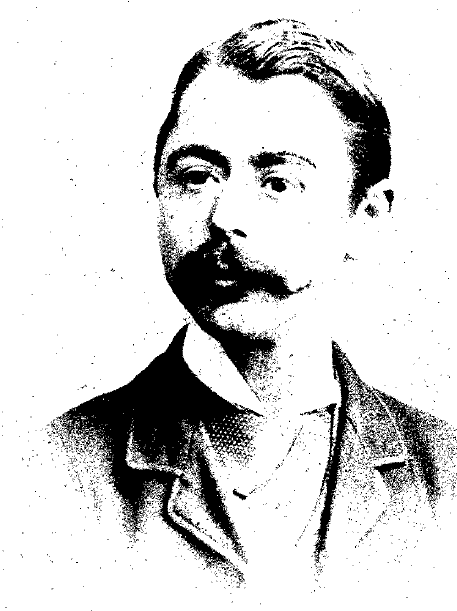
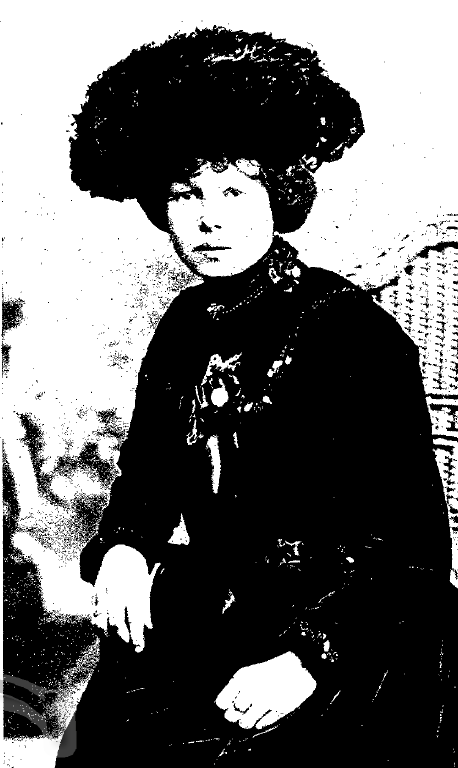
Frustratingly little is known about Frederick Demuth’s life compared to his birth.
Freddy was fostered by a family named Lewis in East London. He trained as a skilled fitter and turner (lathe operator – possibly gun-smithing) and left his foster family and “rough childhood” as early as possible.
In January, February or March 1873 Demuth married the Irish gardener’s daughter Ellen Murphy (b 1854). The couple lived in Hackney in the early 1880s and had a son, Harry (aka Frederick confusingly) in 1882.
The tomes of Marxological correspondence show that Eleanor Marx maintained a friendship with Freddy from at least the 1880s onwards.
When Karl Marx died in 1883, Helene Demuth became Engels’ housekeeper (Jenny Marx senior had died a few years previously). Harry Demuth would later recall his father taking him to visit granny Helene at Engels’ Regents Park Road home.
Eleanor continued her efforts to bridge the gap between Freddy and his presumed father Engels:
“Freddy has behaved admirably in all respects and Engels’ irritation against him is as unfair as it is comprehensible. We should none of us like to meet our pasts, I guess, in flesh and blood.”
Perhaps because of this Freddy was invited to Engels’ 74th birthday party in November 1894. But there was no time to develop things further – Engels died the next year. He left nothing in his will for Freddy, but the “legitimate” Marx children were included and are said to have given him regular support. There are contested suggestions that Engels confessed that Marx was actually Freddy’s father on his deathbed.
One account states that Eleanor Marx introduced Freddy to Clara Zetkin as “my half brother” during the Second International’s Congress of 1896 in London’s Queen’s Hall, Langham Place.
In February 1888 Freddy joined the Kings Cross branch of the Amalgamated Society of Engineers as a skilled fitter. The ASE would shortly become the third largest union in Britain and embark on a lengthy strike for an eight hour day. (Workers’ struggles around the length of the working day was one of the themes Karl Marx tackled in volume 1 of Capital which had been published in English in 1887.)
When Helene “Lenchen” Demuth died of cancer in 1890 she left all her worldly goods – including ninety-five pounds – to Frederick Lewis Demuth of 25 Gransden Avenue, Hackney.

That side of Gransden Avenue is now a building site, but our comrades at Past Tense have written about the area as part of their essential Hackney Walk:
London Fields east: Mentmore Terrace, Sidworth Street, Lamb lane, Gransden Avenue:
Sidworth Street was the site of a V2 bomb during the war and in the 1960s and 1970s industrial unties built.
In 2010 one block (13018) was squatted as Urban HapHazard Squat. Some buildings around Sidworth Street and Mentmore Terrace are currently squatted, some with the knowledge/permission of the property owners.
Properties round here bough by local council after WW2 (bomb damage & slum clearance) and in the 1970s. During this time there were several traveller sites on Lamb Lane, Gransden Avenue and Mentmore Terrace. In the 1980s a site on Gransden Avenue/London Lane was being considered as a permanent local authority traveller site.
past tense
Freddy’s son later recalled that they inhabited the first floor of the “ramshackle” house, with the Clayton family on the ground floor. Henry Clayton worked with Freddy at Paterson and Cooper, a firm of electrical engineers and scientific instrument makers based at Telegraph Works, Pownall Road, Haggerston.
The 1891 census has the family of Frederick, Ellen and Frederick jnr still at Gransden Ave. Freddy is listed as engineer and fitter. But by the 1901 census only the father and son remained.
In 1892 Freddy’s wife Ellen had left him to run away with a soldier. She also nicked most of his possessions, as well as £29 belonging to a workers’ benevolent fund that comrade Demuth had been entrusted with. Ouch. Eleanor Marx pulled some strings and bailed him out with the assistance of her siblings.
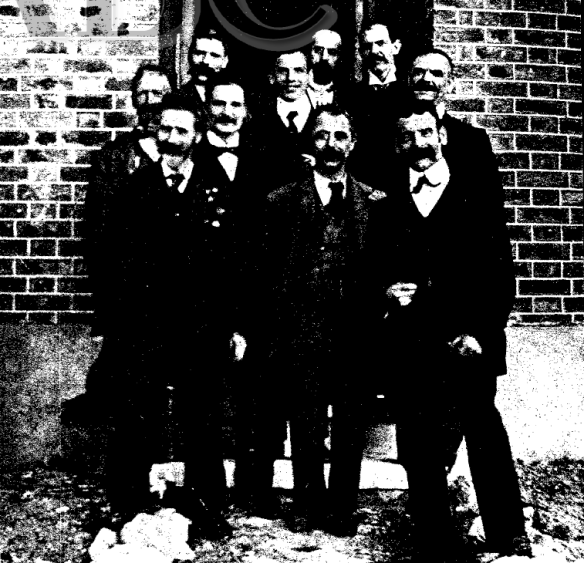
Harry Demuth told journalist David Heisler about his father’s political activity increasing around this time, including being an avid reader of the socialist newspaper The Clarion and his membership of the Hackney Social Democratic Federation, attending their meetings at the Rendezvous Café at 155 Mare Street and the British Oak Tavern on Lea Bridge Road. There is also mention of Freddy being one of the founders of the Clapton Park and District Co-Operative and Industrial Society at 28 Brooksby’s Walk in Homerton. Harry recalls his father studying the works of Marx and Engels and having their pictures on the walls of their family home.
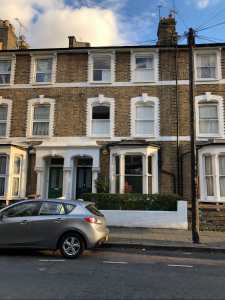
We also know that Freddy was a founder member of the Hackney Labour Party. (When was this? The Labour Party was founded in 1900, but its first showing in Hackney parliamentary and council elections is 1922. Separate Hoxton ran a Labour candidate in the 1919 council elections though).
By 1911 Freddy was boarding at the slightly more upmarket 54 Reighton Road in Upper Clapton. `His profession is listed as mechanical engineer – working with fountain pens. He was boarding with the Payne family. Alfred Payne had also been a founder member of Hackney Labour Party and went on to become mayor of Hackney between 1919-20.
Harry lived elsewhere at this point, working as a cab driver before briefly emigrating to Australia.
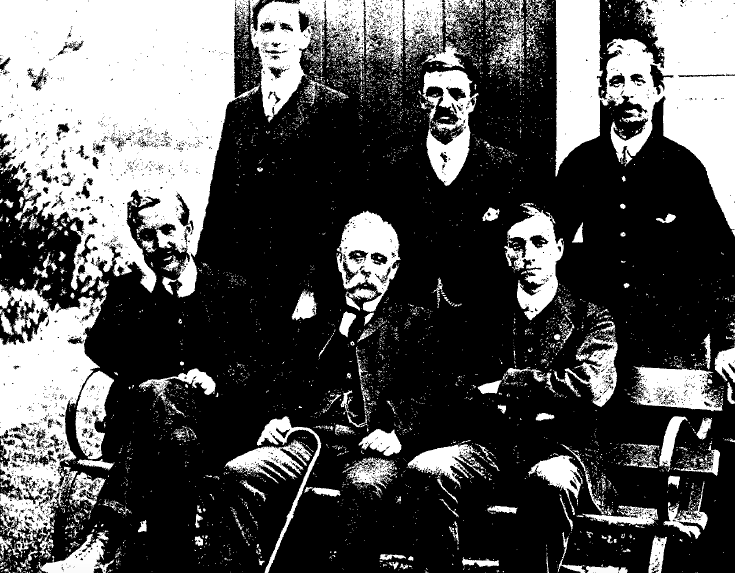
In 1914 Freddy started working at the Bryant and May factory in Bow, initially as a fitter and then as a foreman. He’d previously had roles at Gestetner (Lea Valley) and stamp printers De La Rue (Bun Hill Row). In 1924 he retired at the age of 73. He was still a member of the Hackney branch of Amalgamated Engineers Union.
Freddy died of heart failure in Upper Clapton in 1929, outliving all the other Marx children. At that point he shared a house with Ellen “Laura” Payne, the widow of Alfred Payne. Freddy’s son Harry was for some reason named as his nephew in his will – he got the surprisingly large sum of £1971 12s 4d. Rachel Holmes suggests that this inheritance may have been a product of the financial support Freddy had received from the Marx siblings.
Yvonne Kapp has Frederick Demuth’s last address as 13 Stoke Newington Common:
The hazards of moral judgements and historical perspective
“[Karl] did not love the boy, the scandal would have been too big.”
Louise Kautsky
There are two very polarised perspectives on Frederick Demuth and they are both entirely wrong.
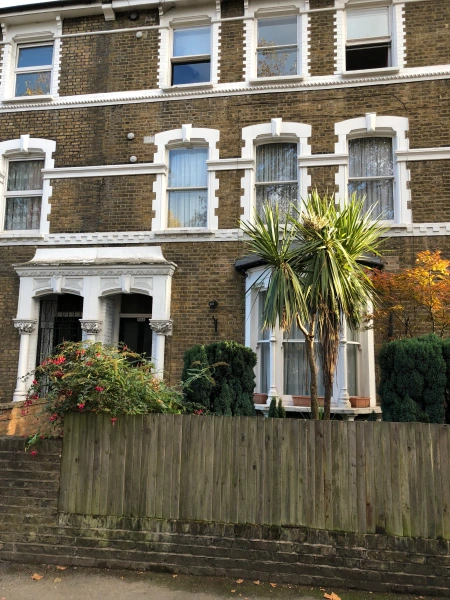
Socialists and Communists generally gloss over Freddy’s existence as an unfortunate event that is either an interesting footnote or something that demonstrates the steps that the workers’ movement had to take to defend itself from attacks in the media.
Generally, if he is ever mentioned at all, Freddy is one weapon in an arsenal of tools used to attack his father. If you listened to conservative commentators you would know that Karl Marx was a terrible person who never worked a day in his life (in fact he was paid as a journalist and author) sponged off factory owner Engels (partly true – although Engels was more than willing to help out his objectively more talented comrade) and more seriously raped his servant. The latter claim is of course impossible to prove or disprove now.
The few accounts we have of life in the Marx family household seem to indicate that there was a great deal of mutual affection between Karl, Jenny senior and Helene. That said, there is clearly a power imbalance between employer and employee which makes it difficult to know how complete consent can be in a sexual relationship which takes place in that context.
We also know from accounts of the Marx household and the wider historical context that finances were tight (and often desperate) – and that “respectable” families did not include children born out of wedlock.
Karl Marx shouldn’t have shagged his housekeeper. But he did. Is this a stain on his character? Yes it is. Does it undermine his ideas? Not really, but it is a black mark for sure.
They think only of two individuals and forget the family. They forget that nearly every dissolution of a marriage is the dissolution of a family and that the children and what belongs to them should not be dependent on arbitrary whims, even from a purely legal point of view.
On a Proposed Divorce Law, 1842
The change in a historical epoch can always be determined by the progress of women toward freedom, because in the relation of woman to man, of the weak to the strong, the victory of human nature over brutality is most evident. The degree of emancipation of woman is the natural measure of general emancipation.
The Holy Family, 1844
The nucleus, the first form of [property] lies in the family, where wife and children are slaves of the husband. This latent slavery in the family, though still very crude, is the first property …
The German Ideology, 1846
In the above quotes, Marx recognises the unequal status of women in capitalism and the effect that the dissolution of a family can have on children. He would also have been only too aware of the differences in class between him and his housemaid – and the consequences of their relationship being discovered.
Marx and Engels’ vision for a new world included some laudable words about women and relationships:
It [communist society] will transform the relations between the sexes into a purely private matter which concerns only the persons involved and into which society has no occasion to intervene. It can do this since it does away with private property and educates children on a communal basis, and in this way removes the two bases of traditional marriage, the dependence, rooted in private property, of the woman on the man and of the children on the parents.
Communist Manifesto, 1848
But the world of 1848 (and 1851 when Freddy was born) was even further away from that than we are now. Marx fostered out Freddy because that is what most people in that situation would have done at the time – and because a public scandal about his family would undermine the work he was doing. He behaved in accordance with his class, which meant oppressing his servant even more than usual when the chips were down.
I am not married. I am writing this whilst my daughter does her school homework at the same table. I am able to do this without controversy because of the work done by feminists and the workers’ movement over the last 167 years to loosen the strange-hold of conservative values on the family and child rearing. Marx’s contribution to this process of social change cannot be ignored.
Having said that, parts of the left would still rather cover up a scandal than address the failings of the men it elevates to leadership positions. In 2013 the Trotskyist Socialist Workers Party was rocked by accusations that it had covered up allegations of rape and sexual misconduct against one of its leading members. As one of the female victims said at the time: “They are putting the interests of the party above the interests of the women.”
The personal remains political. Which brings us back to Frederick Demuth.
If you subtract the question of his father from the equation, Freddy’s life remains interesting and worth celebrating. He escaped a harsh childhood and a horrendous marriage breakup and still managed to retain his humanity – his capacity to care for others. His years of union work and political activism are the quiet, patient building blocks out of which we will construct a better world.
Notes and sources
I first heard about Frederick Demuth during a talk given by Barry Burke and Ken Worpole at Pages Bookshop in 2015. So thanks as ever to them for all the work they did on Hackney’s radical history before I even got started.
I have used the following for this piece:
Eduard Bernstein – What Drove Eleanor Marx to Suicide (1898) – includes a number of letters from Eleanor `Marx to Freddy that demonstrate he was her main confidante towards the end of her life.
Terrell Carver – Marx’s ‘Illegitimate Son’ …or Gresham’s Law in the World of Scholarship – a useful dose of scepticism on the Marx-paternity claim.
Hal Draper – Marx and Engels on Women’s Liberation
Edna Healey – Wives of Fame: Mary Livingstone, Jenny Marx and Emma Darwin (Bloomsbury, 2011)
Rachel Holmes – Eleanor Marx: A Life (Bloomsbury, 2014)
Yvonne Kapp – Eleanor Marx: A Biography (Verso, 2018) – the main source. Appendix 1 especially.
Yvonne Kapp – Writing Eleanor Marx – includes an account of the Demuth family contacting her after being messed about by a journalist who stole their family photos.
Frances Wheen – Karl Marx (Fourth Estate, 1999)
Two newspaper articles from the David Heisler interviews in the early 1970s:
ABC Madrid – El Hijo Que Carlos Marx Trato De Olividar (“The son that Karl Marx tried to forget”) (1974)
Der Spiegel – Marx: Ungeliebter Sohn (“Marx: Unloved Son” – google translate) (1972)
Art Book Review Books Capitalism China Climate Emergency Conservative Government Conservative Party COVID-19 Creeping Fascism Economics EcoSocialism Elections Europe Event Video Far-Right Fascism Film Film Review France Gaza Global Police State History Imperialism Israel Italy Keir Starmer Labour Party London Long Read Marxism Marxist Theory Migrants NATO Palestine pandemic Protest Russia Solidarity Statement Trade Unionism Trans*Mission Ukraine United States of America War
The Anti*Capitalist Resistance Editorial Board may not always agree with all of the content we repost but feel it is important to give left voices a platform and develop a space for comradely debate and disagreement.


I heard that Freddy died 1929 in a Peabody flat, Wilde Street.
was it possible that helene impregnated by any other from their neighborhood ?
I’m curious why there seems to be a consensus that Marx was the father or at least had sex with Lenchen. Is it just the letters of Zetkin and Kautsky? Those seem like strong evidence on their own but I wonder if there is anything else